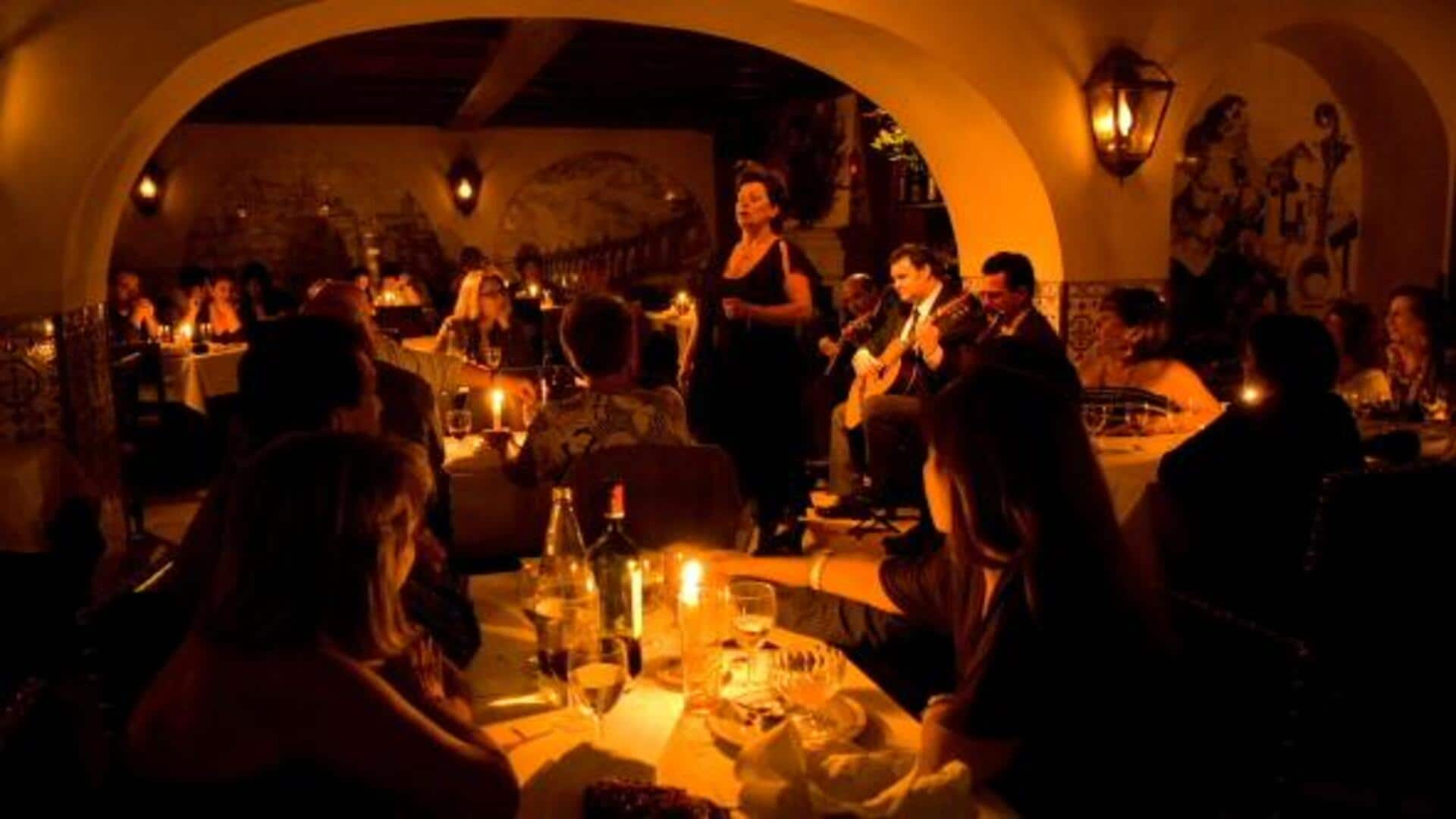
Tune into Lisbon's traditional music genre called fado
What's the story
Lisbon, Portugal's coastal capital, brims with history and culture, and among its most treasured aspects is fado. This traditional music genre is renowned for its intense emotional resonance and melancholic melodies. Often misinterpreted as solely a manifestation of sadness, fado is a profound expression of the full spectrum of life's poignant experiences, capturing the essence of the human condition.
Roots
The essence of fado music
Fado music has its roots in the early 1800s within Lisbon's vibrant working-class districts. It emerged as a heartfelt expression among locals, particularly in pubs and cafes frequented by sailors and fishermen who shared their stories. Now, it holds a place of honor as a UNESCO Intangible Cultural Heritage, reflecting the deep cultural identity of Portugal.
Myths
Misconceptions about fado
Many hold the misconception that fado music is an anthem of solely sorrow and despair. However, central to fado is "saudade," a complex feeling of longing tinged with nostalgia, but it also joyfully embraces life's lighter moments with humor and satire. Far from being a dirge for the brokenhearted, fado is a vibrant celebration of the entire emotional spectrum.
Venues
Experiencing authentic fado
For the quintessential fado experience, one must venture to Lisbon's authentic "fado houses." Nestled in the historic Alfama district, these cozy establishments are alive with soul-stirring live performances. As fado artists share their craft, visitors can savor traditional Portuguese dishes. It's an immersive cultural feast where every strum and lyric intimately connects with the audience, embodying Lisbon's spirited heart.
Interaction
Engaging with local culture
To truly understand fado, one should engage with Lisbon's residents. Participate in workshops or initiate conversations with performers after their shows to discover their unique connections to this music form. These interactions offer valuable perspectives on how fado is an integral part of Portuguese life and continues to influence its cultural fabric even in contemporary times.